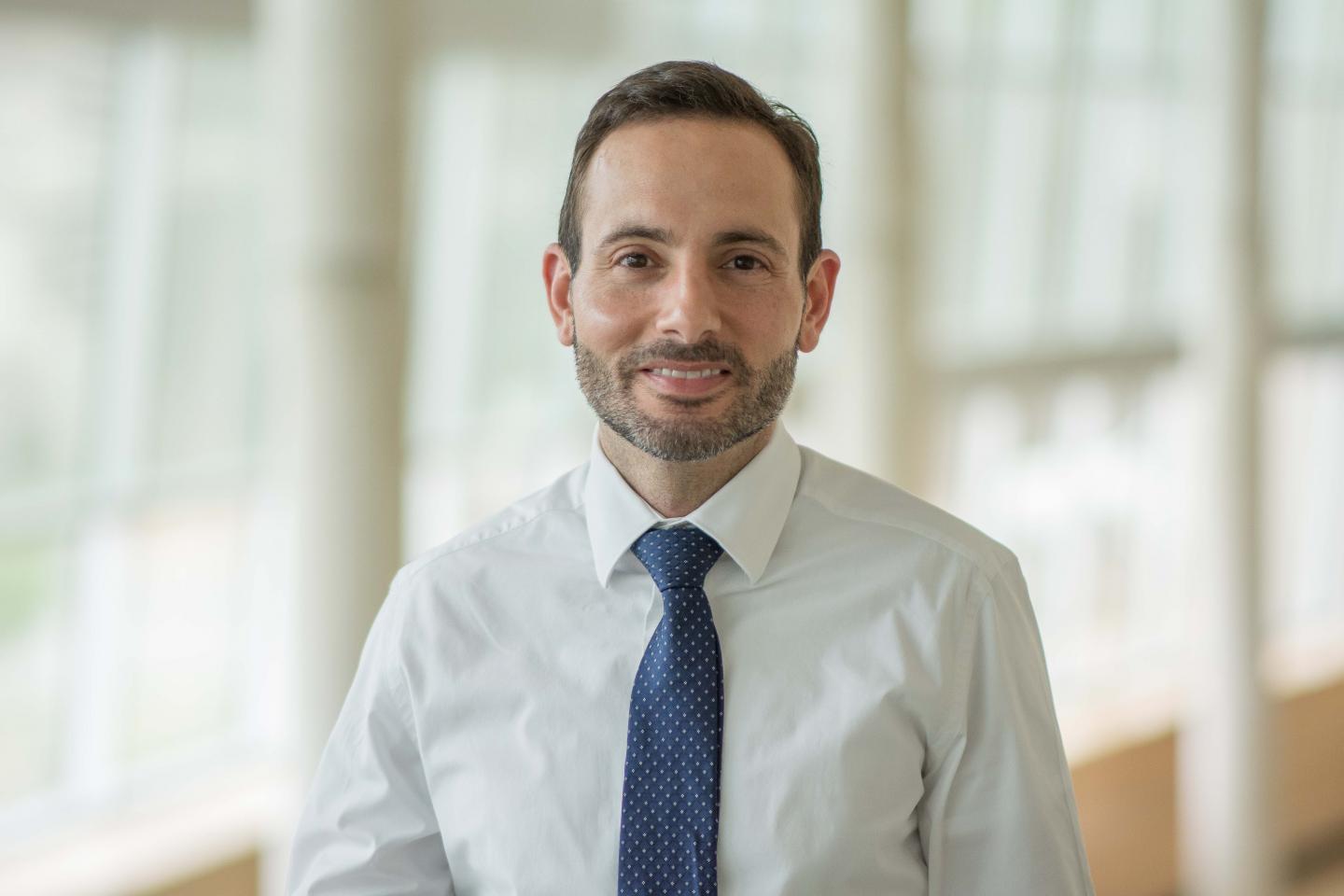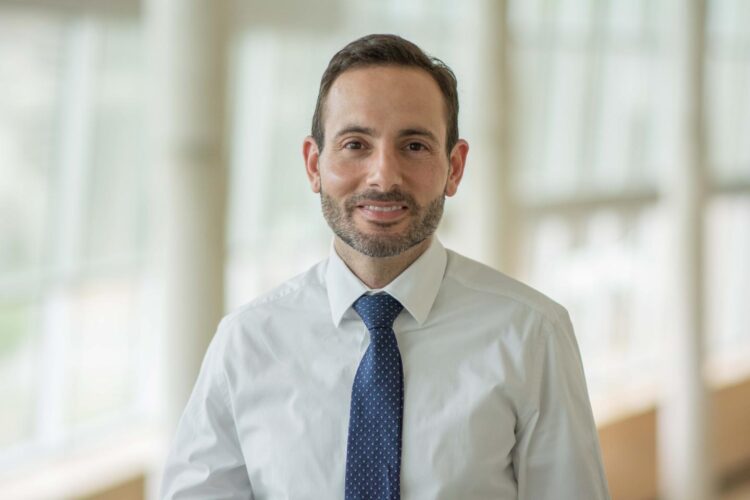Pan American Health Organization providing international platform for workbook

Credit: University of Nebraska Medical Center
Omar Rahman, M.D., director of the Munroe-Meyer Institute Department of Genetics at the University of Nebraska Medical Center, is part of a group that has created a training manual in both English and Spanish designed to help health care providers recognize and diagnose fetal alcohol spectrum disorders (FASD).
Dr. Rahman’s colleagues included Maristela Monteiro, M.D., Ph.D., senior advisor on alcohol and substance abuse for the Pan American Health Organization/World Health Organization (PAHO/WHO); Christie Petrenko, Ph.D., assistant professor of developmental and behavioral pediatrics at the University of Rochester Medical Center and associate director of clinical training at the Mt. Hope Family Center; and Diego Gomez, a neuroscience major at Creighton University.
Drs. Rahman and Petrenko have consulted and provided training workshops on FASD throughout the world as consultants for PAHO/WHO since 2011. They worked with Dr. Monteiro in Chile in 2017 and the Dominican Republic in 2018-19, and their experiences in those nations led to the creation of the workbook.
“Each time we’ve done these trainings, we’ve continued to improve our training materials and get feedback from sites,” Dr. Petrenko said. “The current iteration of training material really solidified on our last trip to the Dominican Republic. It’s been a great opportunity to work together and find the most effective ways to engage people in different countries who may have different resources and skill sets available.”
“We were informed by our prior experience, but we also had some latitude and could tailor the best ways to teach this content and these skills to people, given the constraints of each region.”
“As we saw its usefulness, we kept adding to it,” Dr. Rahman said. “It became a much more comprehensive work.”
The 55-page handbook, now available in English and soon to be available in Spanish, features sections on prenatal exposure, dysmorphology, neuropsychology, the diagnostic process, and case-based learning modules.
The handbook is particularly valuable because FASD often goes undiagnosed. The team shared a story of a health professional who attended a training and realized her nephew might have FASD.
“That was in the Dominican Republic,” Dr. Monteiro said. “She then brought in her nephew and his mother, and the child had a full case of fetal alcohol syndrome.
“The boy had been through three different, privately done evaluations, they had done an MRI, and no one knew what it was. And it was textbook, really, the child had all the features.”
That incident was part of the inspiration for the handbook, which also drew from work Drs. Rahman and Petrenko had done in Eastern Europe and Africa with the WHO.
Dr. Monteiro championed the project with PAHO and, by putting the handbook on the PAHO website, ensured it will be accessible and have worldwide reach. “People in Central and South America trust PAHO to provide them with good resources and information,” Dr. Rahman said.
The team credited Gomez, who currently is applying to medical school, with writing most of the handbook in both English and Spanish. Members of the University of Nebraska Medical Center public relations team helped design the handbook, and the graphic design work was supported by the Friedland Family Distinguished Professorship.
“The fact that this is freely available to everyone, and on such an important website, is really going to help raise awareness about the condition, in addition to being a good resource for anyone who interacts with patients who have FASD,” Gomez said. “There is an extensive medical literature, but there isn’t a lot of available materials that can be used for training directly,” he said. “Having someone condense that and explain it in language accessible to people will raise awareness.”
The team is now looking at creating additional resources aimed at parents and teachers, and Dr. Monteiro wants to explore how COVID-19 – which has been shown to increase alcohol consumption when people are quarantined at home – may impact FASD prevalence.
Prenatal alcohol exposure affects about 2 to 5 percent of the US population. Children and adults with fetal alcohol spectrum disorders (FASD) struggle with lifelong learning and behavioral problems. Without appropriate support services, they are at high risk for secondary conditions, such as mental health problems, trouble with the law, school disruption, and substance abuse.
For a free copy of Assessment of Fetal Alcohol Spectrum Disorders: A Training Workbook, go to https:/
We are Nebraska Medicine and UNMC. Our mission is to lead the world in transforming lives to create a healthy future for all individuals and communities through premier educational programs, innovative research and extraordinary patient care.
###
Media Contact
John Keenan
[email protected]
Original Source
https:/





